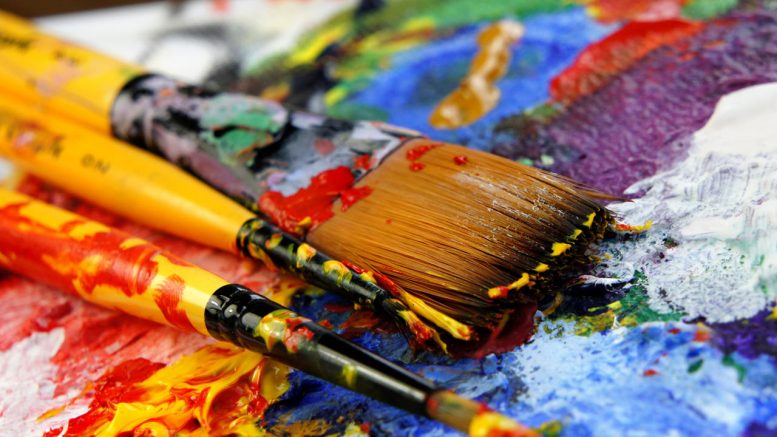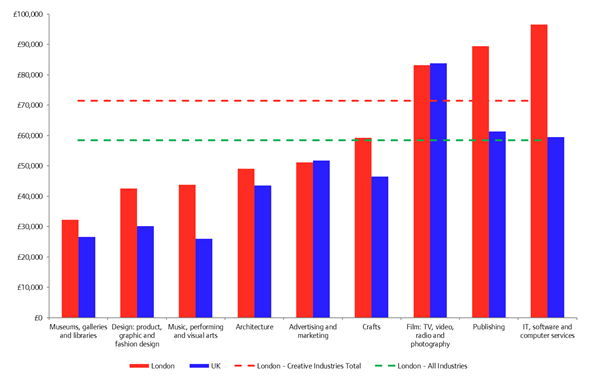A thought all millennials have had- living in the city makes you more creative.
City life seems magical from afar; with artists on every corner, and musicians on every pub bench.
But does that mean cities make you more creative, and what exactly is the relationship between the industry pros and the city?
Fine Art student at Central Saint Martins in London, Miriam Klan, says “I don’t think the city is necessarily a creative place. But, when taken into account the fact that most of us move here from basically a no name town, that sense of freedom can be the catalyst that strikes creativity; Especially with all the culture you have here, architecture has a lot to do with that sense of grand freedom I think.”
Many online personalities, such as Los Angeles based YouTuber, Meghan Hughes, have come out to say that cities have a draining effect on them and their energy. The constant fuss and movement of the city has caused many creatives to move in order to find a more peaceful space of their mind, meaning that they have more freedom to create.
Voice of London spoke to Blogger and poet who goes under the pseudonym of ‘Nycto’ about being a creative in a city.
In your poem ‘light of the night’ you state: “Oh, how the light glances at your every move, but the air is never still and air never sweet”, were you referring to city life?
I was referring to city life, yes. Uh… being London based has had many benefits, but also many aspects of London life has made life that bit more difficult; which I think no one needs. [laughs] I think creatives and artists need a certain stillness to be able to create a certain piece of magic that will forever have their name on, and when you life in the city that’s just not possible.”
Have you noticed a difference in the way your art comes out when you create it in a still environment versus a busy one?
Most definitely. Not only that, but, it has a tonne to do with how you feel inside and with yourself. A lot of the time when I’m in the city, I’m stressed and get down more easily. This means that whenever I create something, the chances of me hating it and putting myself down about it is much bigger. In contrast, though… when I’ve spend a few days in the countryside or a beach-house where it’s all very chill and dreamy, I feel good, and most importantly at peace, which means I’m less likely to keep tearing myself down.
That’s interesting… A lot of artists and poets are known to correlate emotional pain and suffering with great art. What do you think about this?
Well, I don’t disagree. Art is supposed to be emotional, and a means to let all that out. But a lot of the time I’ve witnessed the stresses of the city break people, especially those with so many emotions that need letting out. I think cities have this cycle of making us artists feel accepted, then we begin to belong, then we begin to question our belonging, because surely is we belonged the questioning wouldn’t be there. I don’t know. Maybe I should be speaking for other artists, but that’s definitely how I feel.
So, what do you think keeps you, and of course many other creatives stuck in that loop of the city?
Opportunity. Cities are made to have opportunities. And with such a niche career path like art, or anything remotely creative, even if it’s writing, it’s hard to make it and to make a living for yourself doing the one thing that you love the most. So, I think that really is why artists and creatives stay in the city, even if they hate it.
“Figure A2: GVA per workforce job for the creative industries, London and UK, 2015″
Image credits: London’s creative industries – 2017 update, Daryl Rozario, LONDONDATASTORE
In LondonDataSTORE’s 2017 update, it has been understood that creative jobs are “those industries which have their origin in individual creativity, skill and talent and which have the potential for wealth and job creation through the generation and exploitation of intellectual property”. According to this data, earning an average of £20 per hour, creative jobs have increased to almost one million in London since the 800,000 in 2016, meaning that the creative industry is becoming increasingly important in the eye of the economy. The creative industry in London is said to be having a lead by “IT, software and computer services.”
Computer scientist and gaming enthusiast, Joanne Walters, commented on this saying: “As a computer scientists it was often hard to get the true respect by other business sectors. After I left university this was a very difficult thing for me to deal with, especially because everyone being a downer on you needs you. Creative industries, especially IT are incredibly important to the functioning of a modern society, and I’m glad this is getting recognized more and more as the years go by.”
Words: Brenda Zini


